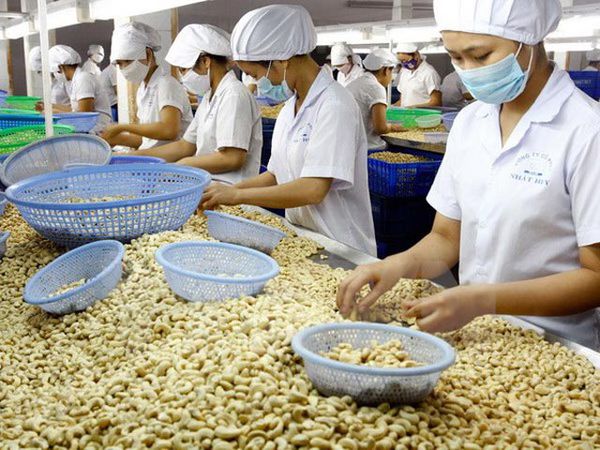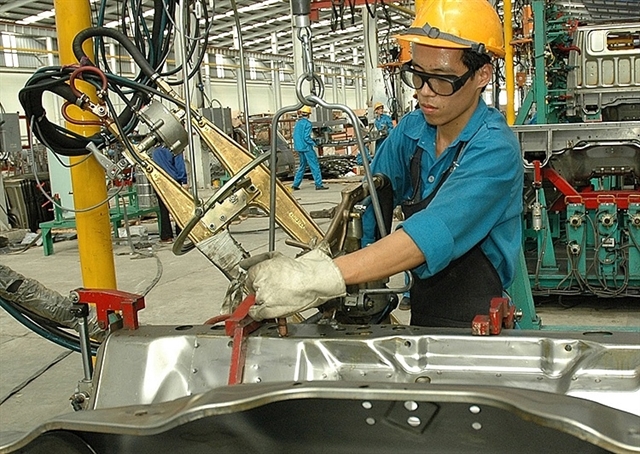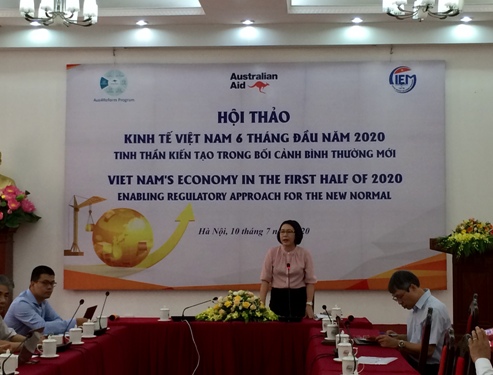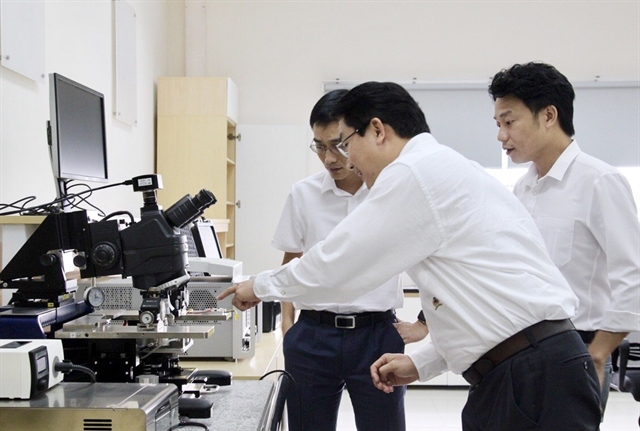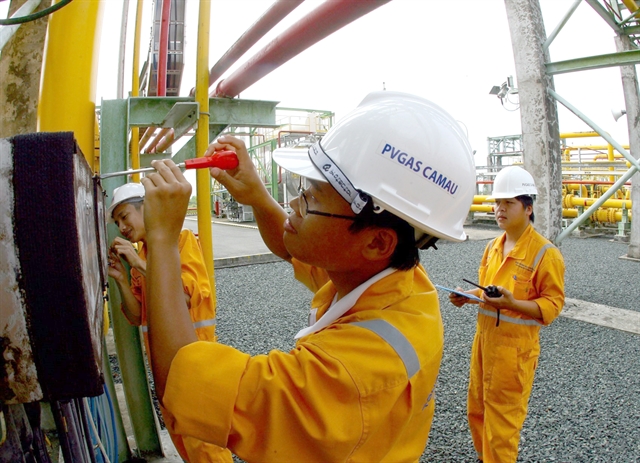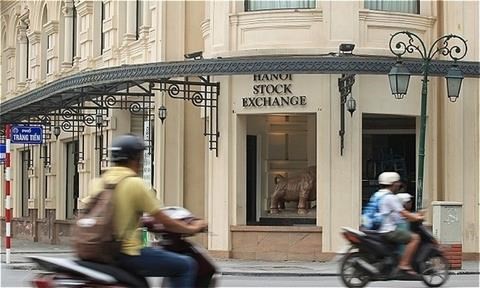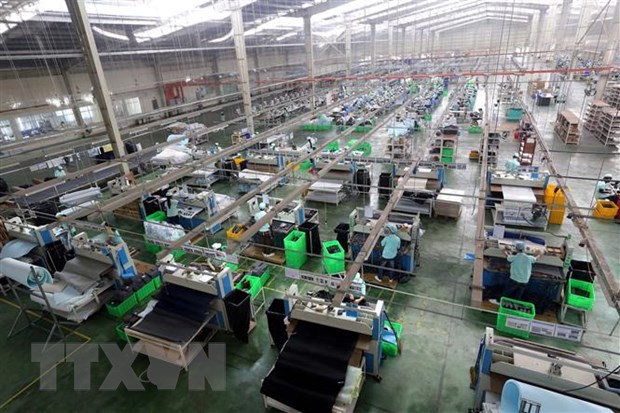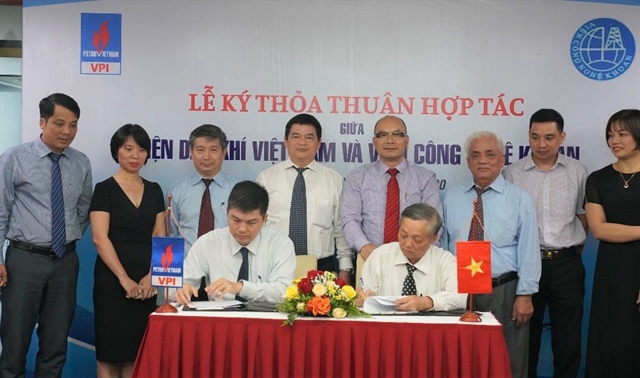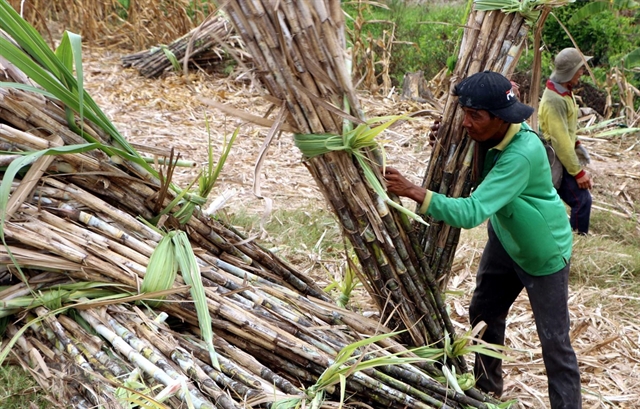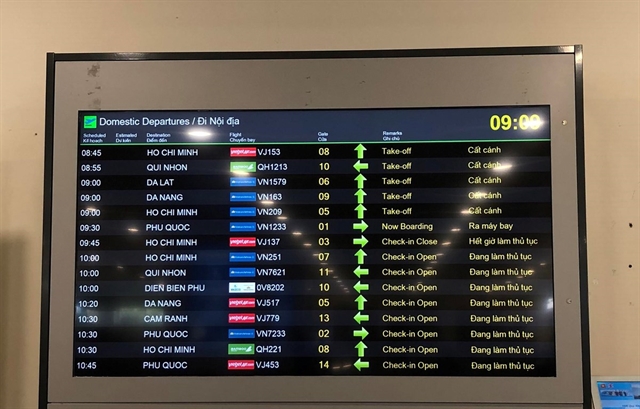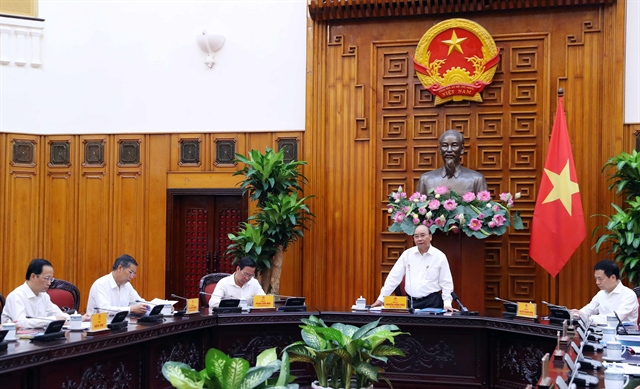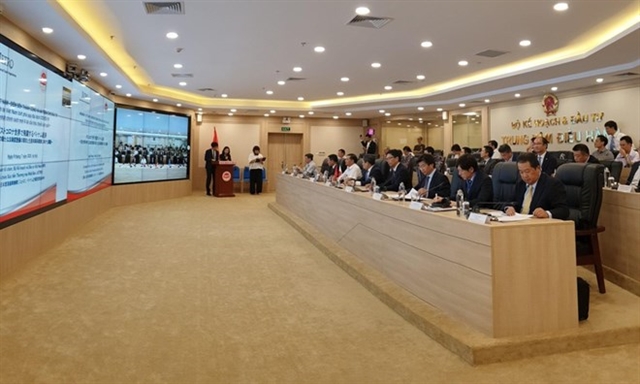
LienVietPostBank will complete the transfer of its LPB shares from the unlisted Public Company Market (UPCoM) to the Ho Chi Minh Stock Exchange (HoSE) in the fourth quarter of this year.— Photo danviet.vn
LienVietPostBank has said it will complete the transfer of its LPB shares from the unlisted Public Company Market (UPCoM) to the Ho Chi Minh Stock Exchange (HoSE) in the fourth quarter of this year.
The plan was approved by its shareholders at its annual general meeting that took place in late June.
The listing is expected to improve the liquidity of the shares and bring other attendant benefits, an executive of the bank said.
Earlier shareholders of Asia Commercial Joint Stock Bank had approved a switch from the Hà Nội Stock Exchange (HNX) to HoSE.
Saigon-Hanoi Commercial Joint Stock Bank (SHB) is set to make a similar move.
According to analysts, such a switch would benefit both the lenders themselves and their shareholders with ACB even possibly added to HoSE indexes and given substantial weightage like the VN30 (around 4 per cent), VN Diamond (10 per cent), VNFIN Lead (12 per cent), and VNFIN Select (12 per cent).
The Government has decided to establish the Việt Nam Stock Exchange by merging HoSE and HNX in 2020-23. It will be managed by HoSE, while HNX will be responsible for managing the bond and derivatives markets.
Banks listing their shares on the HNX will then have to move to HoSE.
Analysts said banks’ decision to shift their shares from UPCoM to HoSE indicates their determination to strengthen themselves to be able to join a “bigger playing field.”
UPCoM was set up by the Ministry of Finance and State Securities Commission to regulate over the counter shares issued by unlisted public companies.
The Việt Nam Securities Depositiory will not accept shares not traded through one of the two stock exchanges or UPCoM.
Listing on UPCoM provides a central, transparent trading platform but with less stringent trading rules than on the stock exchanges.
That is why many banks have preferred UPCoM for the trading of their shares.
The fact that more banks are ready to participate in the stock exchanges, particularly HoSE, means Vietnamese lenders are growing strongly and eager to improve their competiveness.
Explaining this, experts said banks that list their shares on HoSE would be able to raise capital more easily through the market since listing there would attract more attention from investors, especially professional investors.
As of 2019 Việt Nam had 19 banks in the Asian Banker 500 list of the 500 largest banks in the Asia-Pacific Region, with Vietcombank among the 200 strongest.
Credit institutions’financial capacity has been significantly consolidated with their combined charter capital increasing year after year and estimated at VNĐ617 trillion by March end, and equity totaling VNĐ937.9 trillion.
Việt Nam has 18 banks whose shares are listed on the trading floors, including 10 at HoSE namely VCB, CTG,BID, TCB, HDB, TPB, VPB, EIB, and three others ACB, SHB and NVB.
Shares of LPB, VIB, BAB, and KLN are traded on UPCoM.
The number of bank shares listing on the nation’s bourses is expected to rise significantly.
Diversification is the name of the game
In a document to be circulated at its upcoming annual general meeting, the executive board of the Hậu Giang Pharmarceutical Joint Stock Company (DHG) plans to seek shareholder approval to diversify into the printing industry.
Vietnam Dairy Products JSC (Vinamilk) also announced in its document to be presented at the upcoming annual general meeting that it will seek approval to set up a chain of stores selling coffee, soft drinks and food.
It has such a store at its head office since 2019.
A Vinamilk executive said the company has tied up with a partner who has the capability to help it develop this chain.
Vinamilk plans to expand the chain rapidly if it shows promise, he said.
At this year’s annual general meeting, Vinamilk shareholders would also consider diversifying into sugar production, he said.
It eyes production of commercial sugar products for special purposes such as for diabetics and people on specific diets.
The Bình Thạnh Import and Export Production and Trade Joint Stock Company (GILIMEX) is expanding into property development with a series of mergers and acquisitions.
It has injected considerable money into Hưng Khanh Real Estate Company and owns a 99.99 per cent stake in it. It also owns a 35 per cent stake in the Hoàng An Investment and Development Joint Stock Company.
A Gilimex executive said his company invested in them because they are owning two large parcels of land in Bình Dương close to industrial parks.
Why are so many companies diversifying into businesses unrelated their core competence?
Vinamilk said its traditional dairy products like milk and others have seen slow growth in recent years.
New businesses with new products would help Vinamilk achieve new growth, he suggested.
The Gilimex executive said the property market is expected to benefit from many foreign manufacturing companies seeking to shift to Việt Nam to take advantage of free trade agreements and safety and stability thanks to Việt Nam’s excellent control of the Covid-19 pandemic.
So his company is planning to build a chain of three- or four-star hotels targeting people working in industrial parks, he explained.
Cường Thuận Investment Development Joint Stock Company is reportedly focusing all its resources on developing industrial properties to take advantage of foreign investments moving to Việt Nam from China due to the pandemic and the US-China trade war.
It is currently developing the Tân An industrial cluster and Phước Bình-Long Thanh Industrial Park.
Solar energy is one sector that many enterprises from outside the energy industry want to enter.
At this year’s annual general meeting shareholders of Lộc Trời Group approved a proposal to add solar power generation to the company’s list of main operations, which are now production of rice and plant protection products.
Analysts said that whenever core businesses prove less effective or face difficulties, enterprises have to consider expanding their operations to other areas in the hope of creating a new momentum for themselves.
But this admittedly means taking the risk of doing business in new and multiple sectors, they added. VNS

